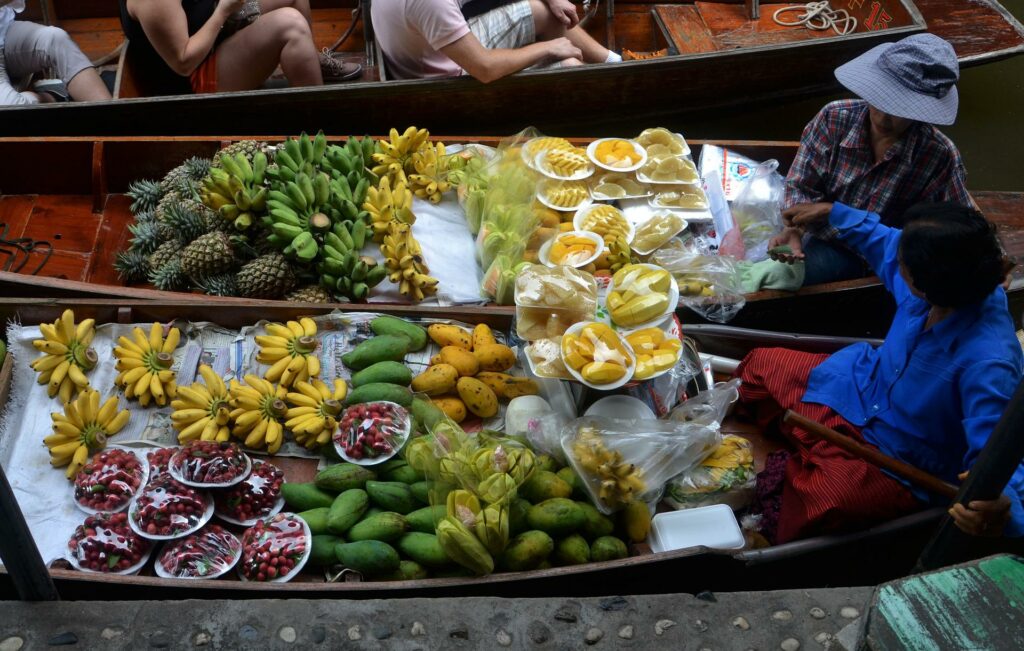
A recent study was published in the nature food journal which estimates that the global food transportation networks emissions are 3.5-7.5 times higher than previously estimated and that we should move production closer to population centers and a more plant based diet adopted, especially in wealthy countries.
A recent news article coverings this publishing has made headlines and there has been discussions on wether the publishing was breakthrough or has taken some liberties. After delving deeper into the article, and the news piece, the conclusion seems to be that the title of the research has inflated the importance of the issue relative to the actual findings. While impressive in its efforts to use new data and methods, the research has overestimated food miles due to some assumptions and decisions made over the course of the study according to a researcher Ulrich Kreidenweis, who was not involved with the process.
From my own research into this topic I would tend to agree that majority consensus still favours that food miles are one of the lowest sources of emissions and changing our diets to a predominantly plant based one would reduce emissions by a substantially bigger margin. (Weber and matthews, 2008) found that food miles are responsible for a total of 15% of emissions and that red meat is 150% times more carbon intensive that chicken or fish. Thus simply removing red meat from the diet or reducing it to once a week would do more to lower emissions from the global food chain than if everyone transitioned to only buying locally sourced food.
This issue with articles that try to shift the focus from “What” food you eat to “Where” the food comes from is it dilutes the importance of greening our diets and when there is so much information being thrown at people about reducing their carbon footprint it can get all too confusing and leave people defeated or prioritising the wrong things. for example this BBC article (Allen, 2021) begins its discussion with touting the heavy carbon footprint of food carried by air freight. Despite the fact that air freight account for only 0.16% of food miles according to (Ritchie, 2020). The BBc article later does admit that air freight is reserved for high value extremely perishable goods, which most likely is not something the everyday consumer would buy. But, the point remains that most people will only read the title and first few paragraphs of articles which is enstilling the wrong message to the public. (Adetunji, 2022) Is an example of a article about the recent publishing which takes great liberties to bend the results of the research to over dramatize the impact of transportation of food to the total GHG emissions from the global food chain. By using big numbers like “36% of emissions from freight were cause by fruit and vegtable transport” it provides a very confusing message to consumers as to wether they should stop buying produce sourced from abroad. But this can have dire impacts for micro nutrients and the variety and health of peoples diets. Tackling issues in the global food chain is about reducing emissions, improving efficiency. But, it is also about ensuring equal access to nutritious food that can help us achieve SDG 2 – Zero Hunger and make sure noone is suffering from malnutrition and deficits of micro nutrients.
People can make a larger difference globally, if they focus on fiding alternatives to meat products and dairy, Especially red meat and substituting them with a diversified diet of fruits vegetables other greens and then a balanced amount of protein and other macro nutrient sources.
References
Adetunji, J., 2022. The world’s affluent must start eating local food to tackle the climate crisis, new research shows. [online] The Conversation. Available at: <https://theconversation.com/the-worlds-affluent-must-start-eating-local-food-to-tackle-the-climate-crisis-new-research-shows-185410> [Accessed 22 June 2022].
Allen, P., 2021. The facts about food miles | BBC Good Food. [online] Bbcgoodfood.com. Available at: <https://www.bbcgoodfood.com/howto/guide/facts-about-food-miles> [Accessed 22 June 2022].
Li, M., Jia, N., Lenzen, M., Malik, A., Wei, L., Jin, Y. and Raubenheimer, D., 2022. Global food-miles account for nearly 20% of total food-systems emissions. Nature Food,.
Ritchie, H., 2020. Very little of global food is transported by air; this greatly reduces the climate benefits of eating local. [online] Our World in Data. Available at: <https://ourworldindata.org/food-transport-by-mode#:~:text=Transporting%20food%20by%20plane%20can,miles%20are%20from%20air%20travel.&text=People%20often%20think%20that%20eating,to%20reduce%20our%20carbon%20footprint.> [Accessed 22 June 2022].
Tandon, A., 2022. ‘Food miles’ have larger climate impact than thought, study suggests – Carbon Brief. [online] Carbon Brief. Available at: <https://www.carbonbrief.org/food-miles-have-larger-climate-impact-than-thought-study-suggests/> [Accessed 22 June 2022].
Weber, C. and Matthews, H., 2008. Food-Miles and the Relative Climate Impacts of Food Choices in the United States. Environmental Science & Technology, 42(10), pp.3508-3513.